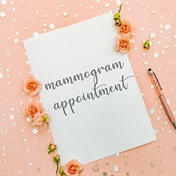Women in their 40s with no family history of breast cancer are just as likely to develop invasive breast cancer as women whose mother or sister has had the disease, according to a new study.
These preliminary findings support a recommendation for all women 40 to 49 to get annual mammograms, not just those with a family history of breast cancer, said Dr Stamatia V. Destounis, a Rochester, NY, radiologist. Women with no family history are typically considered low-risk.
Destounis evaluated cancer patients who were seen from 2000 to 2010 at the Elizabeth Wende Breast Care facility, where she is a managing partner.
Results
"Invasive cancer [cancer that spread to the lymph nodes] was diagnosed in 64% of patients without family history and 63% with," she said.
She is set to present her findings at the annual meeting of the Radiological Society of North America in Chicago.
During the decade studied, 373 women 40 to 49 years old were diagnosed with breast cancer after mammography screening at the center. Of the nearly 40% who had a family history (meaning a primary relative with the disease), 63.2% had invasive breast cancer, while in the no-family-history group, 64% of the patients had invasive disease. (Of those without a family history, 16 had a personal history of breast cancer.)
When the researchers looked at the cancers' aggressiveness, they found 29% of cancers in women without a family history and 31% of those with a family history had spread to the lymph nodes.
While some experts agree with Destounis that annual mammograms should begin at 40, others do not. The American Cancer Society recommends annual screening with mammograms for women starting at age 40. However, the US Preventive Services Task Force recommends women 40 to 49 discuss screening with their doctor and then decide. The Canadian Task Force on Preventive Health Care earlier this month recommended that women age 40 to 49 at average risk not get routine mammograms.
"I don't see that this study helps inform a woman about whether she should start mammograms at age 40 or at age 50," said Dr Michael LeFevre, co-vice-chair of the US Preventive Services Task Force. One limitation of the study is that it was conducted at a single facility, a limitation that Destounis acknowledges. However, she said the women are ethnically diverse and from all income levels.
The study finding, LeFevre said, ''doesn't say anything about the probability of a woman dying in her 40s."
Differences in family history
LeFevre also pointed out that "having an aunt die of breast cancer at age 85 is not the same as having a mother or sister with breast cancer at 42," when it comes to family history. When a woman discusses with her doctor when she should begin mammograms, LeFevre said that discussion should definitely include details about family history.
Destounis and some of her co-authors report being investigators for diagnostic imaging companies, including Siemens, Hologic and others. The study was not funded by outside sources, however, Destounis said.
Research presented at a medical conference is considered preliminary until published in a peer-reviewed medical journal.
More information
To learn more about mammograms, visit the American Cancer Society.
(Copyright © 2011 HealthDay. All rights reserved.)




 Publications
Publications
 Partners
Partners















